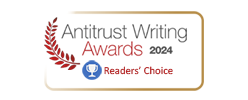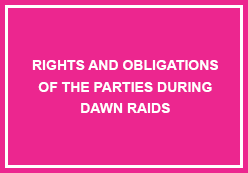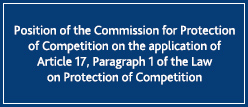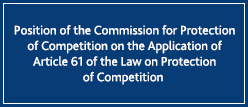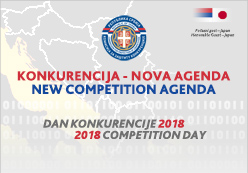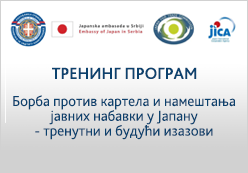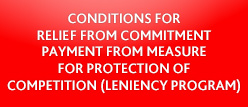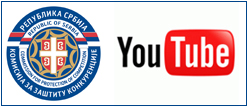 The Commission for Protection of Competition hosted traditional, prestigious seminar of the OECD Regional Center for Competition, headquartered in Budapest. The topic of this gathering, as per initiative of the Serbian Commission as a host, was how to enhance competition culture, competition policy advocacy, and estimate on competition policy’s effectiveness in the SEE region.
The Commission for Protection of Competition hosted traditional, prestigious seminar of the OECD Regional Center for Competition, headquartered in Budapest. The topic of this gathering, as per initiative of the Serbian Commission as a host, was how to enhance competition culture, competition policy advocacy, and estimate on competition policy’s effectiveness in the SEE region.
The conference was opened by the President of the Commission for Protection of Competition, Miloje Obradović, PhD, while main panelists were Sabine Zigelski, OECD Senior competition expert, Šarunas Keserauskas, Chairman of the Competition Council of the Republic of Lithuania, and Kay Weidner, Spokesman for Germany’s Federal Cartel Office.
The President of the Commission for Protection of Competition, Miloje Obradović, PhD, emphasized that among state institution, business and expert public representatives, the judiciary and consumers themselves, still exists an insufficient level of knowledge on the importance of competition legislation.
“I believe that topic on how to develop a competition culture is in common for all regional bodies in the majority of countries that either went, or are still going through a transition. Famous Cambridge sociologist, Ralf Dahrendorf, explained the situation of countries that had a discontinuity in a market economy with a sentence that is very illustrative of the issues we are facing as well: “Transitional countries can change government in six days, enact laws in six months, build institutions in six years, but for a change in the manners of citizens’ thinking and acting – it will take sixty years”.
President Obradovic said that he believes there is a significant room for improvement in this segment of protection of competition bodies’ operations, but that he is not dissatisfied with the results, especially having in mind the fact that this topic has not always been set as a priority.
During the first and second day of the seminar, methods implemented by competition authorities aimed at improvement of competition culture were presented, hypothetical case of presenting to the media competition protection measures imposed on cartel participants was analyzed, as well as effects of the campaigns directed toward enhancing general public’ knowledge of the competition protection policy implemented by institutions for protection of competition of countries participating in the seminar.
The third day of the seminar was dedicated to the instruments for market monitoring (sectoral analysis, studies, hypothetical cases, reports, researches, etc.) with the aim of identifying possible weaknesses in the market and/or the existence of conditions of competition infringements. Representatives of Lithuania, Germany, Ukraine, Romania and Serbia presented their experiences.
By giving their presentations, representatives of the Commission for Protection of Competition passed a particular contribution to the seminar. Dragan Penezeć, PhD, Secretary General, reviewed Commission for Protection of Competition’s activities, Gordana Bulatović, Chief of Staff, presented the implementation of existing advocacy competition tools in cooperation with the media used for enhancing competition culture, as well as Jelena Popović Markopulos, Senior Advisor in the Department for Economic Analysis, who spoke on the Serbian authority experiences in preparing sectoral analysis.
More than 30 participants from 21 authorities for the protection of competition coming from regional countries, European Union and Euro-Asian region participated in the seminar.
30.09.2016
